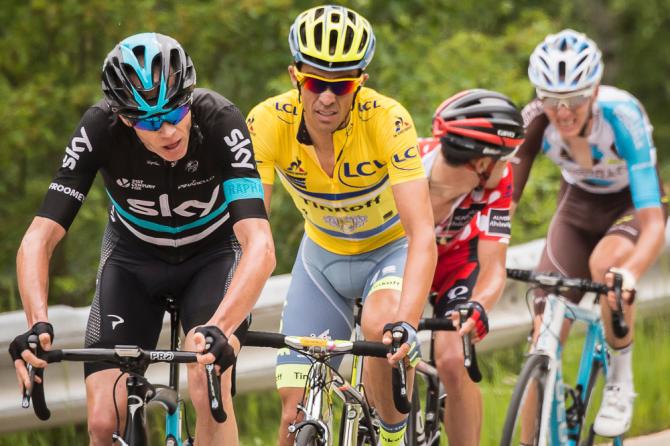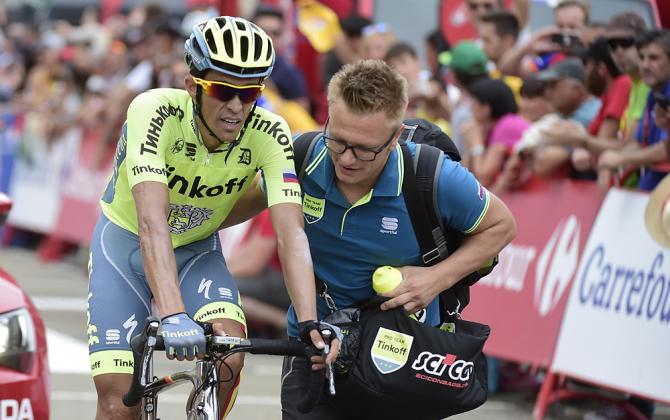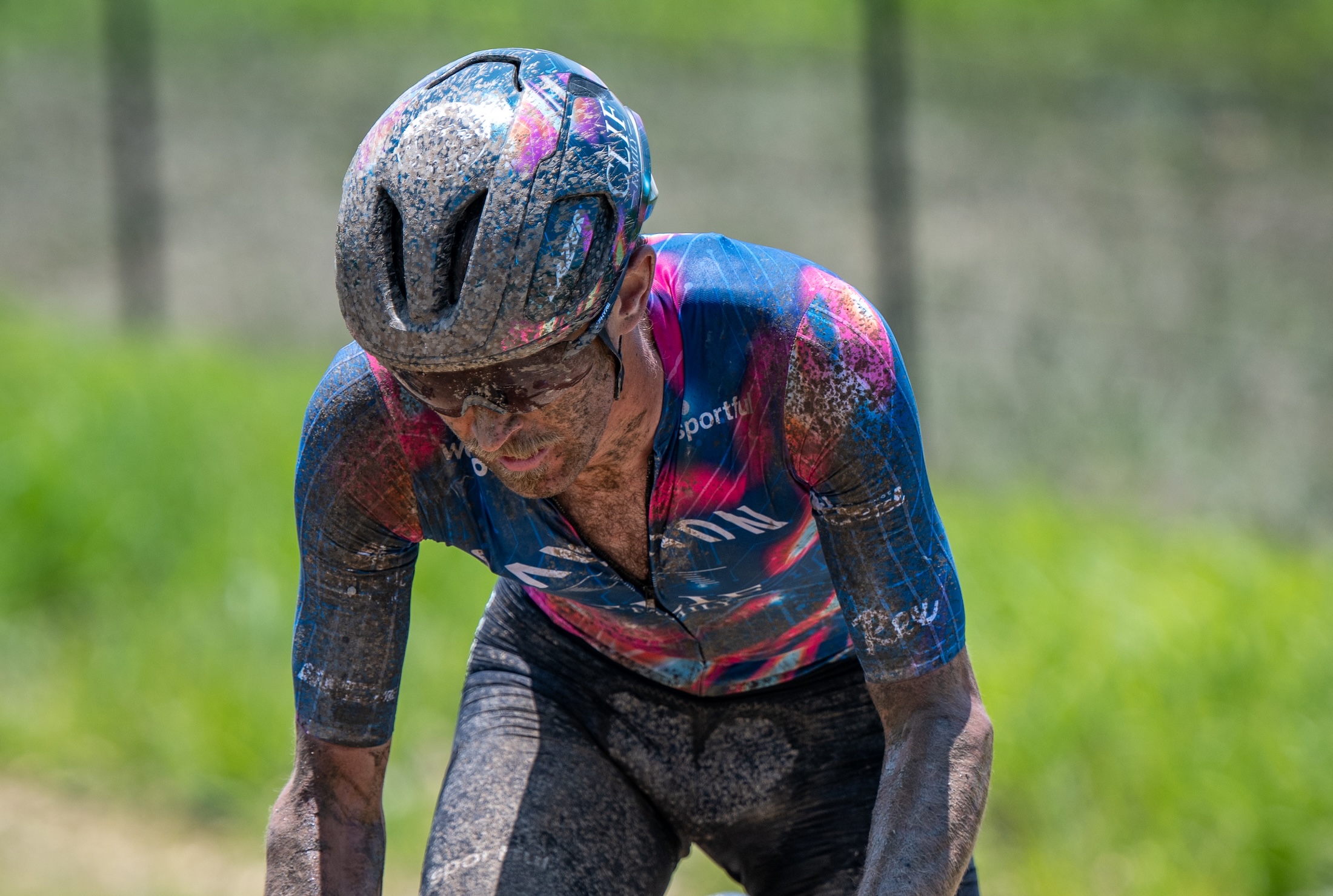Contador: Age is no barrier to winning the Tour de France
An exclusive interview with the new Trek-Segafredo team leader
The latest race content, interviews, features, reviews and expert buying guides, direct to your inbox!
You are now subscribed
Your newsletter sign-up was successful
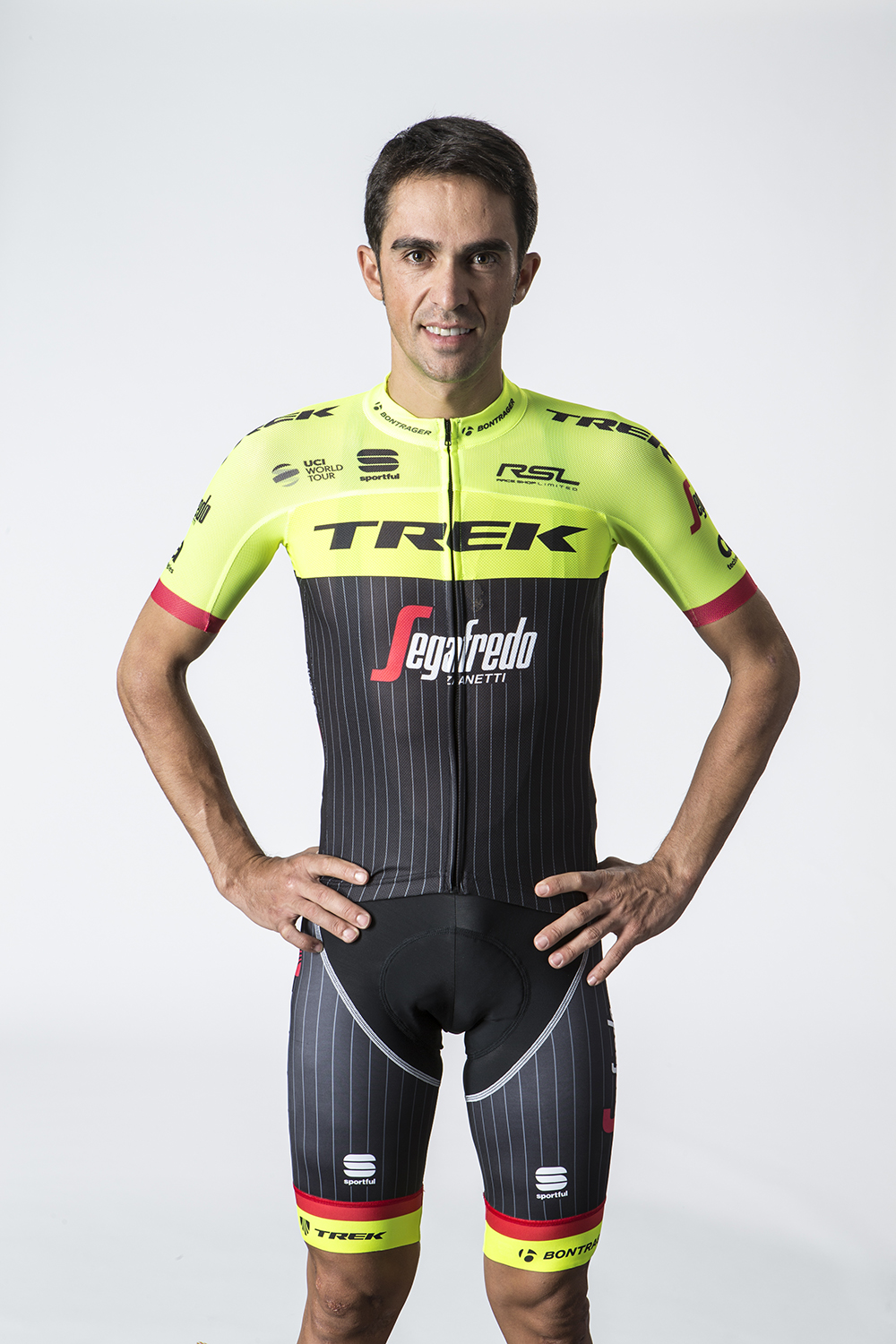
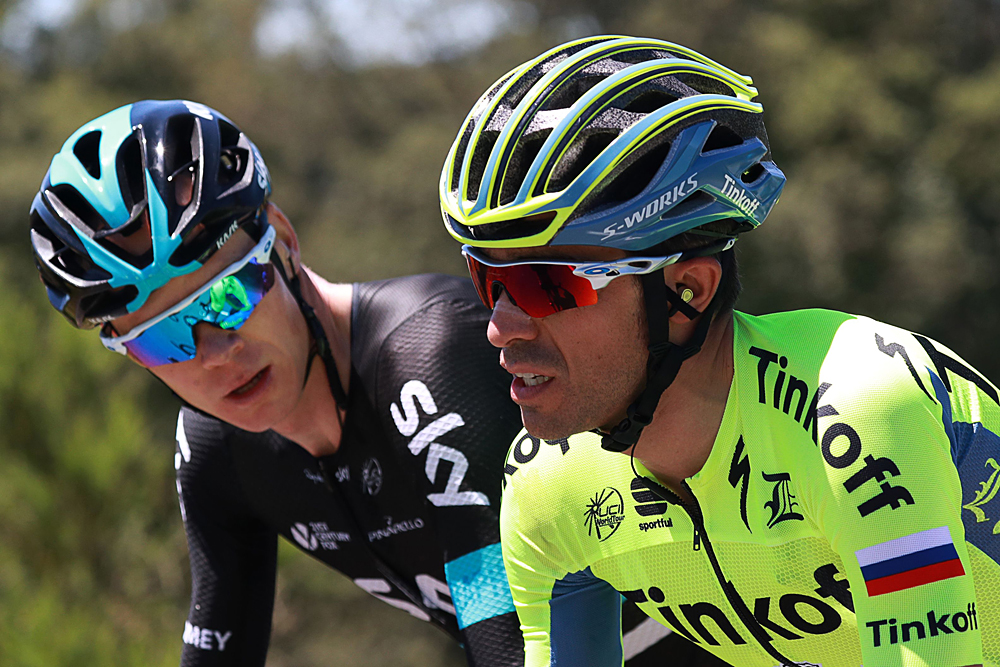
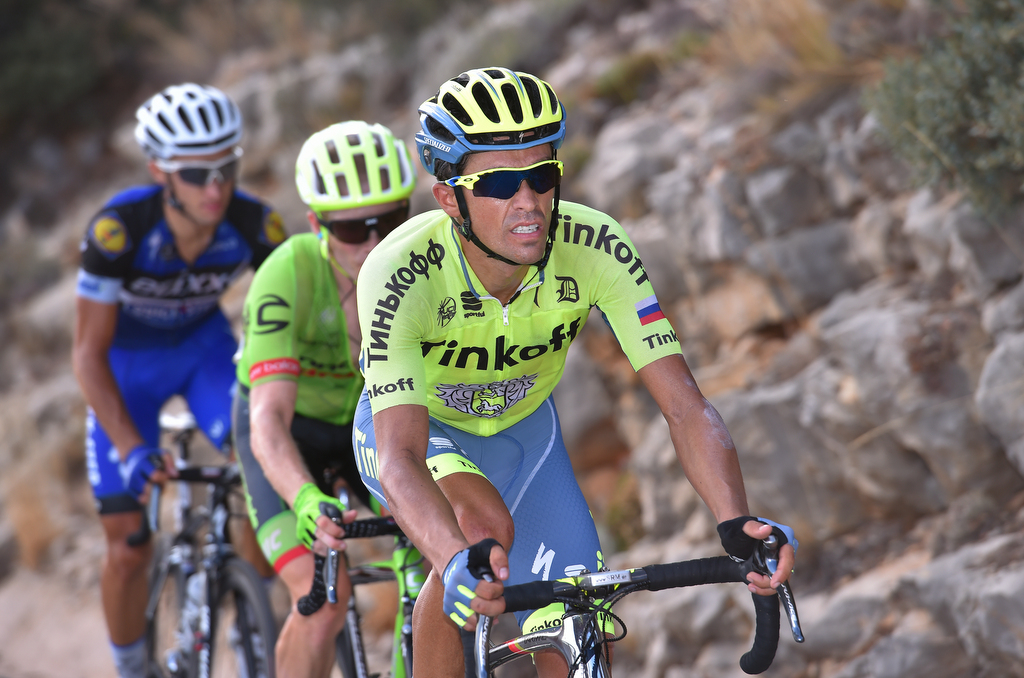
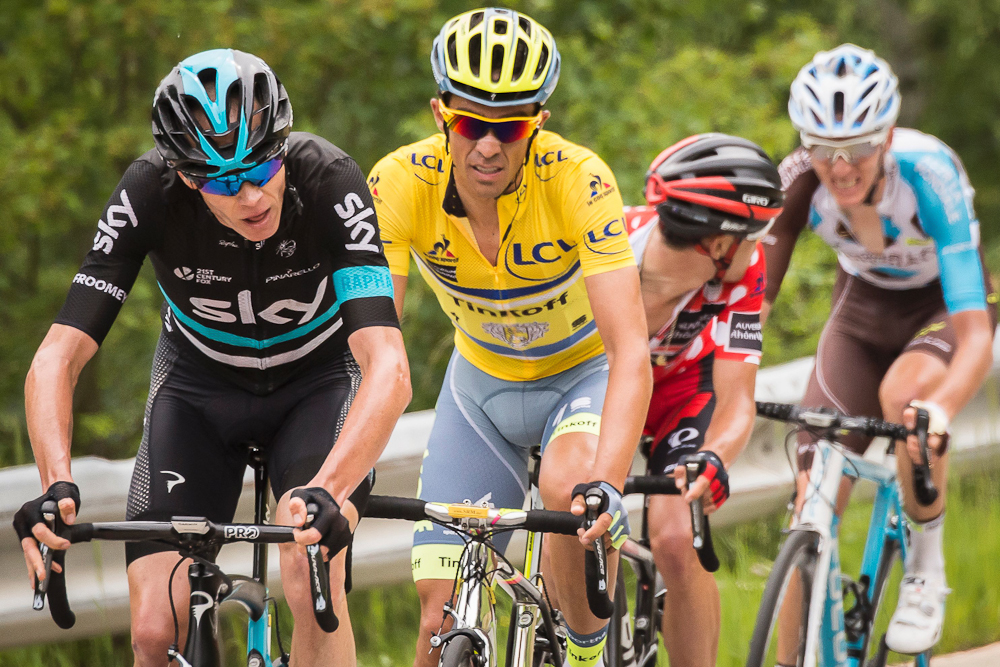
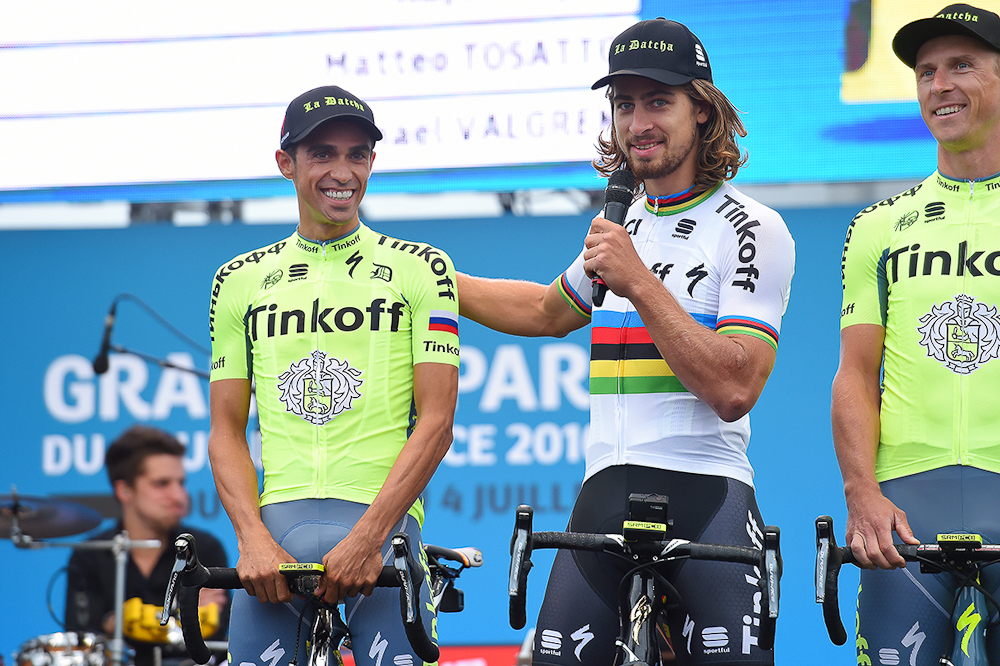
Some things change only to stay the same, as the saying goes. And in the case of Alberto Contador and the Tour de France, even as the years go by, the Spaniard remains strongly - but by no means entirely - focused on winning cycling’s biggest race.
In some ways that is logical, given that Contador is widely considered the best Grand Tour specialist of his generation. But he is now 34 and only four riders in Tour de France history have managed to win the race at that age or older. Cadel Evans, also at 34, was the last in 2011.
For Contador, though, statistics about age do not bother him. On the contrary, he tells Cyclingnews during an exclusive interview, “If they say growing older makes winning the Tour more difficult, that just motivates me even more to do it.
“That kind of data only scratches the surface of the whole question of winning,” Contador explains. “What matters at this point of time in the season is the results I get from my tests, seeing that I’ve got the kinds of numbers that show I can still win it. The rest is secondary, statistics on age are out there, but I’m not going to pay them any attention.”
When it comes to France and July, then, for Contador, it’s a case of ‘plus ça change.’ And in other ways, 2017 remains business as usual, too, with Contador keen to point out that he will not only be focusing on the Tour de France.
“The Tour is the centre of it all, but if it was all about the Tour, that would be pretty boring, wouldn’t it?” he says with a smile. “There are races in the first half of the season that matter a lot to me and which I’m going to push really hard in as well.”
The aim is hardly different from 2016, when Contador was consistently vying for victory from March onwards. He took a stage win and third overall in the Tour of the Algarve, second place in Paris-Nice in an epic battle with Geraint Thomas (Team Sky), a second place in the Volta a Catalunya behind Nairo Quintana (Movistar), and the overall victory in the Vuelta al Pais Vasco for a record-equalling fourth time in his career.
The latest race content, interviews, features, reviews and expert buying guides, direct to your inbox!
This year, with the exception of switching the Algarve for the Vuelta a Andalucia (Feb 15-19), which runs concurrently to the Portuguese race, Contador says he will be doing the same program as 2016.
After the Vuelta al Pais Vasco, his only race before the Tour de France will once again be the Criterium du Dauphine. In 2016, despite not targeting the race due to his preparation for the Tour de France, Contador won the prologue and led for four days before finishing fifth overall.
Contador is due to head to Mount Teide this weekend for a four-week block of important training, emulating 2016 once again and then make his debut in Andalucia. In his last appearance in 2014, he finished second to Chris Froome (Team Sky). However, he warns his goals are a little later in the spring.
“I’ll want to put in a very similar performance, try and get on the podium if I can. I’ll have done a lot of training by then but without having done much high-intensity work because I’m looking more towards Paris-Nice, Catalunya and Pais Vasco. Andalucia is a return to competition, and I’ll likely find myself in the same kind of scenario as in the Algarve, where I’m much better in the last part of the race than in the first part. I’ll maybe be a bit more relaxed about how I race than further into the season.”
At the other end of the season, the return of the Vuelta a Espana to the Angliru, Spain’s most emblematic climb, where Contador sealed his first of three overall wins in 2008, does not, he says, make the race any more or less tempting as a target. But as ever, he’s not committing to taking part until much closer to the time.
“The appealing thing about the Vuelta is that it’s my home country’s Grand Tour and that makes it special. But we’ll have to see [regarding his participation] further down the line,” he says.
Back with Trek, the crucial change
The crucial change for Contador in 2017, then, sees him racing for Trek-Segafredo, riding the American bikes for the first time since a three-year spell on a Trek between 2007 and 2009. Contador seems genuinely pleased to be racing once again on a Trek, the kind of bike with which he won two Tours de France, a Giro and a Vuelta between 2007-2009.
Contador’s racing with Trek-Segafredo also sees him reunited with former Astana teammate Haimar Zubeldia, who formed part of Contador’s Tour de France-winning squad in 2009.
“It’s good to be back with him; I’ve just been having a coffee with all my teammates and we were talking about the old days. The team is completely different to what it was back then, but there are a few people still around, including Haimar. I’m sure we’ll all have a great year together.”
Contador is keen to highlight his longstanding, strong, relationship with Trek the bike company, too, and the great results he achieved on their bikes in the past.
“It’s true there came the point in time when I was under contract to Astana (2010) and they went with RadioShack. But I’ve always had a good relationship with John (Burke, Trek CEO) and one of the biggest reasons why I wanted to sign with this team was because of the equipment they use,” he claims.
“They’ve got a great time trial bike, and I remember that well from when I was getting excellent results on their time trial bikes in 2009. I tried to adopt the same position on other bikes and it just didn’t work out. It was just during the transition in Trek from straight to sloping frames and also one of the first time trial bikes that incorporated the brakes into the frame. The time trial bike is even better now, and I’m very keen and pleased to be working with them again.”
Froome remains the man to beat, looking back at Tinkoff
Regardless of what bike he is racing; Contador knows that Chris Froome remains the rival he will have to beat in July.
“He’s won three of the last four Tours, and together with the team he’s got, that makes him the top rival,” Contador admits.
Looking back towards his time at Tinkoff, Contador admits he will miss having Peter Sagan as a teammate but has nothing more to say about team owner Oleg Tinkov, who he recently described as “someone who has a lot of money and he was able to buy a team, but he didn't know how to run it," during a Spanish radio interview.
Contador has far more respect for former Tinkoff teammate Peter Sagan.
“He was a guy who always knew how to lighten everybody’s mood in the team hotel, but because he’s somebody whom I appreciate and respect greatly as a person and because he is the classiest rider I’ve ever seen on a bike,” he says.
Contador hopes that racing with Trek-Segafredo in 2017 could well make it a far more equal fight with the likes of Team Sky than when he was at Tinkoff and Astana. Support riders like Bauke Mollema and Jarlinson Pantano will surely play a key role in helping Contador in the 2017 Tour.
“The team I’m with right now is going to be a very strong one for the Tour and it makes me feel really confident,” the Spaniard says.
But he is under no illusion of how powerful Team Sky remains.
“Their third or fourth guy behind Froome in the mountains could have been fighting for a Tour themselves. And the last week of the Tour, nobody even tried to break away, Team Sky was so strong. I’m sure I’ll have a very motivated, strong team, but no one should under-estimate how powerful Team Sky are too.”
Nor are Team Sky the only riders he sees as big rivals, Contador points out that the rise of the Colombians - not just Nairo Quintana - “a well-established figure” - but also Esteban Chaves (Orica-Scott) and “don’t forget Fernando Gaviria for the sprints,” means that the South American nation “is one that’s really on the rise.”
“I’m just lucky to have Jarlinson on my side; I’m sure he’ll be a key player in the battles to come.”
The most important piece of the jigsaw remains Contador himself. He is ready for the new season.
“I’m in good shape and with good morale,” he says with determination. “I’ve come through the winter very well, with a few colds and such but nothing out of the ordinary, and I’m raring to go.”
That, too, doesn’t seem to have changed at all since 2016 or before.
Alasdair Fotheringham has been reporting on cycling since 1991. He has covered every Tour de France since 1992 bar one, as well as numerous other bike races of all shapes and sizes, ranging from the Olympic Games in 2008 to the now sadly defunct Subida a Urkiola hill climb in Spain. As well as working for Cyclingnews, he has also written for The Independent, The Guardian, ProCycling, The Express and Reuters.
